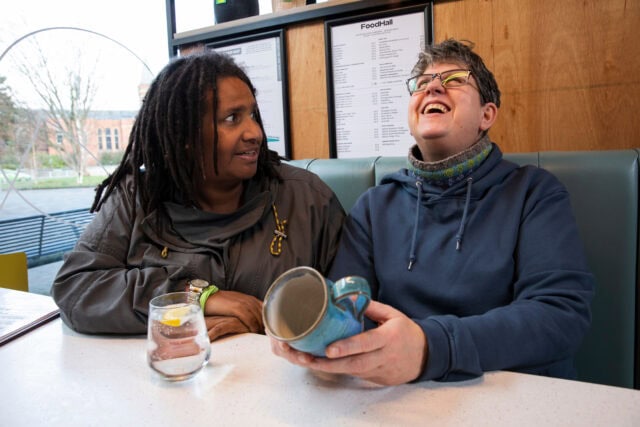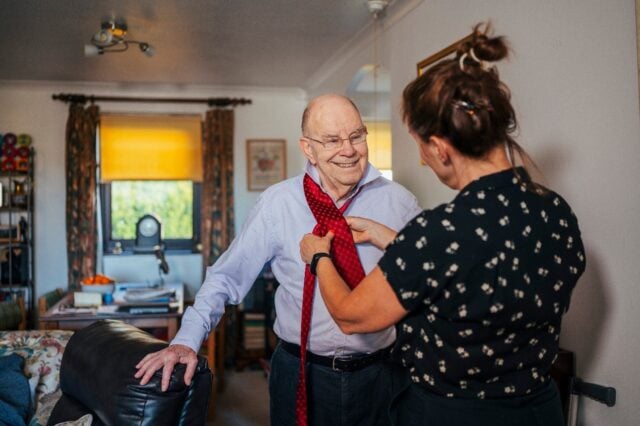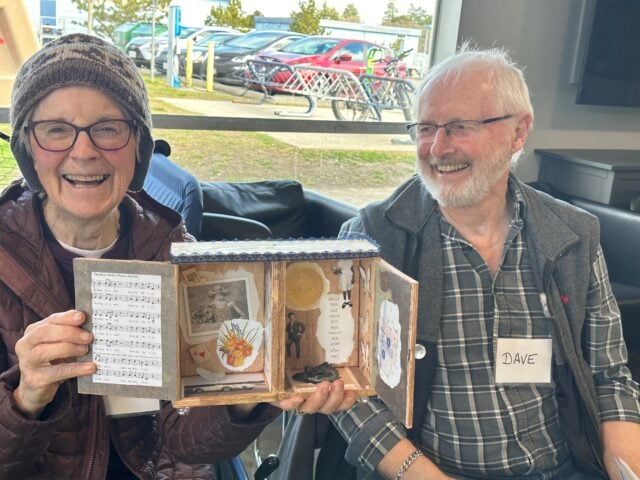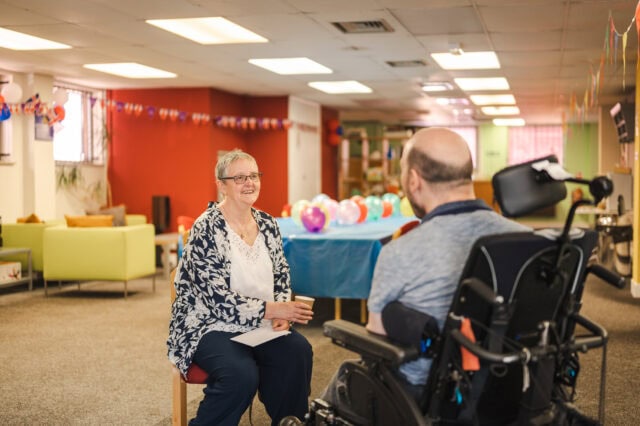By Mark Rapoport, MD, FRCPC
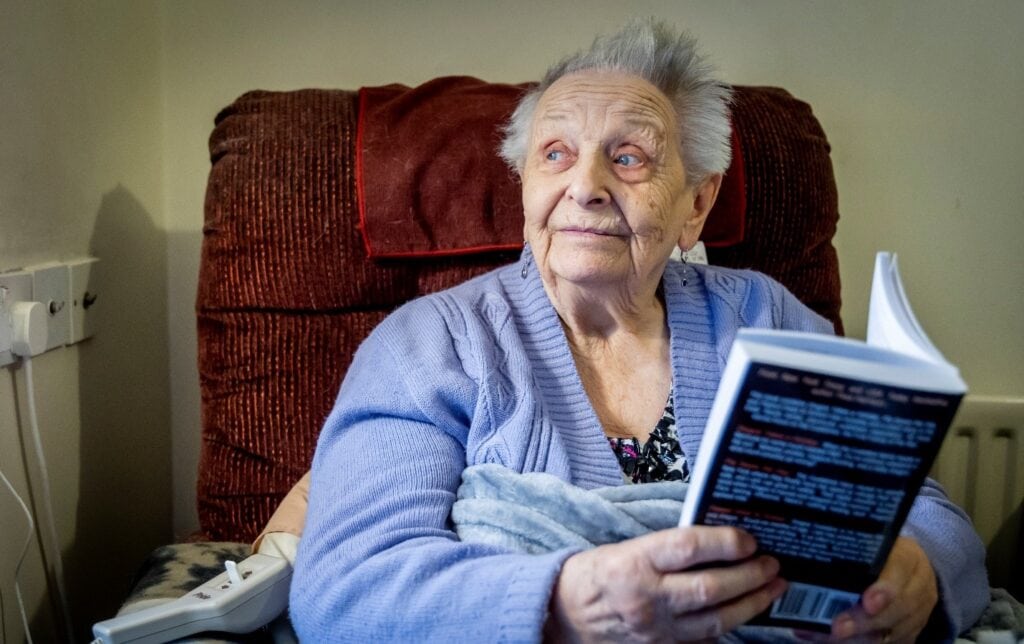
Like many physicians, I see people with a lot of different conditions. I don’t treat people experiencing behaviours in dementia full-time, so I need to look up the latest and greatest evidence to provide the best possible care. That’s why the Behaviours in Dementia Toolkit is an important resource for me.
The reason I love this website is that it’s useful for a variety of audiences looking for practical and credible tools they can use. I personally like guidelines best, but I’m sure others prefer videos. The Toolkit does a great job of providing helpful information in many different formats and relevant to care partners, personal care workers, and health care professionals alike.
From a physician’s perspective, we’re often asked to consult about and recommend medications. People living with dementia and their families need support with prescribing and deprescribing, so you’ll find quite a few resources below that focus on that topic. There are also useful tools for working with other physicians, teams, or families to support someone living with dementia.
The Toolkit features several tools that are specific to family physicians—they have a unique type of relationship with someone living with dementia. Family physicians often have a deeper understanding of someone’s history and context stretching back many years. That foundation of trust can be critical for providing person-centered care.
Care partners, whether paid or unpaid, spend the most time with someone living with dementia. There are some very useful strategies here for care partners. Some resources offer more general advice, while others are geared to specific common scenarios – for example, a person living with dementia might express their desire to “go home” or experience distress with daily hygiene routines.
I’ve highlighted seven resources below that I think are particularly effective. I hope you will find them helpful as well.
1. Assisting a resident living with dementia to bathe
This is a practical tip sheet that addresses a common challenge when supporting someone living with dementia. The strategies here are meant to ensure dignity and comfort of the person are centered. It’s a good resource for care partners or front-line health care providers alike.
https://the-ria.ca/wp-content/uploads/2022/06/Bathing_Dementia_Final.pdf
2. Person-centered language in emergency departments
The language we use matters. What we say and what we add to someone’s chart can have a big impact on their treatment. If someone is labelled “aggressive”, that stigma will follow them. We should attempt to add specific and objective descriptions of behaviours instead. This guide to person-centered language in emergency departments is particularly good because it doesn’t just tell you what not to say, but what you should say (and document) instead.
https://rgptoronto.ca/resource/person-centred-language-in-the-ed-dementia-and-responsive-behaviours/
3. Dementia: Medications for treating behavioural and psychological symptoms
If you’re looking for an overview of how medications are used to treat behaviours in dementia, a Centre for Addiction and Mental Health primer is a good starting point to build some foundational knowledge.
4. Appropriate prescribing of psychotropic medication for non-cognitive symptoms in people with dementia
As a physician, I find guidelines really helpful in my work. CCSMH is working on new Canadian guidelines on behaviours in dementia (coming soon!), but there is a resource one can use right now. This one was published by the Irish government in 2019 and focuses on prescribing. Like any guideline, it’s pretty long at close to 200 pages. But it also has four-page executive summary that people who don’t want to read the entire guideline can refer to.
5. Medication: It’s your choice
This is an excellent guide from Australia on making decisions about medications for older adults. It empowers people to ask questions about their medication with a practical checklist to bring to their doctor’s appointment. It’s not specific to dementia but would be useful for both people living with dementia and their family members or care partners.
https://opan.org.au/information/medication-its-your-choice/
6. Improving antipsychotic appropriateness in dementia patients (IA-ADAPT)
This program features useful videos about improving antipsychotic approaches for dementia. These brief videos cover topics like doses, benefits, facilitating shared decision making, and monitoring for side effects using case examples.
https://igec.uiowa.edu/ia-adapt
7. Use of antipsychotics in BPSD discussion guide: Primary care
This is a handy guide on pharmacological and non-pharmacological approaches for primary care providers. It’s eight pages long and would be a great resource for a family physician. It could be saved on a desktop for easy reference. A particularly useful component is a half-page summary of behavioural solutions that could facilitate conversations with a family member about quick solutions, outlining what we could try before moving reaching for medications.
https://cep.health/media/uploaded/UseofAntipsychotics_PrimaryCare2016-2.pdf
_ _ _

This article was contributed by Dr. Mark Rapoport, a professor of psychiatry in the University of Toronto Faculty of Medicine and staff psychiatrist at the Sunnybrook Health Sciences Centre. Dr. Rapoport is also a member of the Behaviours in Dementia Toolkit and CCSMH behaviours in dementia guideline working groups.
Would you like to curate a resource list for the Behaviours in Dementia Toolkit? Reach out to CCSMH knowledge broker Nick Ubels at [email protected]

